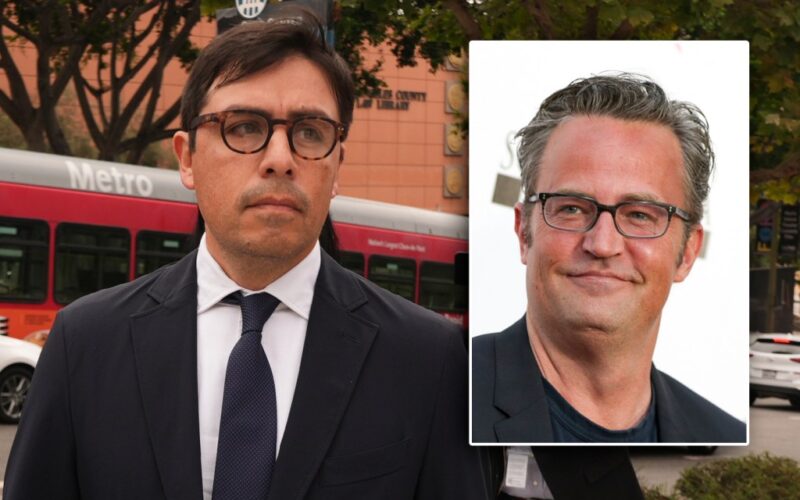The doctor who supplied late actor Matthew Perry with the ketamine that contributed to his death pleaded guilty on Wednesday to four counts of distributing the surgical anesthetic.
Dr. Salvador Plasencia, 43, had been a major focus of the investigation launched after the 54-year-old “Friends” star was found dead in a hot tub at his Los Angeles home on Oct. 28, 2023.
An autopsy and toxicology report revealed he died from the “acute effects of ketamine,” with contributing factors including drowning, coronary artery disease and the effects of buprenorphine, prescribed to combat opioid addiction.
Plasencia was the second of two doctors arrested last year, and the fourth of five to strike a plea deal. Dr. Mark Chavez pleaded guilty last October to conspiring to distribute ketamine. Live-in assistant Kenneth Iwamasa and Perry acquaintance Erik Fleming also took plea deals last year.
The fifth defendant, 41-year-old “Ketamine Queen of Los Angeles” Jasveen Sangha, has pleaded not guilty and will head to trial in August. Prosecutors allege she sold Perry the dose that killed him, and continued running a drug den for months after his death.
Plasencia, going by the moniker “Dr. P,” sold Perry vials of ketamine for $2,000 apiece in September and October 2023 after buying them from Chavez for a mere $12 each, texting Chavez, “I wonder how much this moron will pay.”
By pleading guilty, which the doctor agreed to do last month, Plasencia staved off an August trial, and prosecutors dropped three more ketamine-distribution counts and two of falsifying records. Even so, he faces a potential 40-year prison sentence, since the deal did not lay out sentencing guidelines.
“Dr. Plasencia is profoundly remorseful for the treatment decisions he made while providing ketamine to Matthew Perry,” his attorney, Debra White, said in a statement following his guilty plea. “He is fully accepting responsibility [and] intends to voluntarily surrender his medical license, acknowledging his failure to protect Mr. Perry, a patient who was especially vulnerable due to addiction.”
With News Wire Services
Originally Published:








